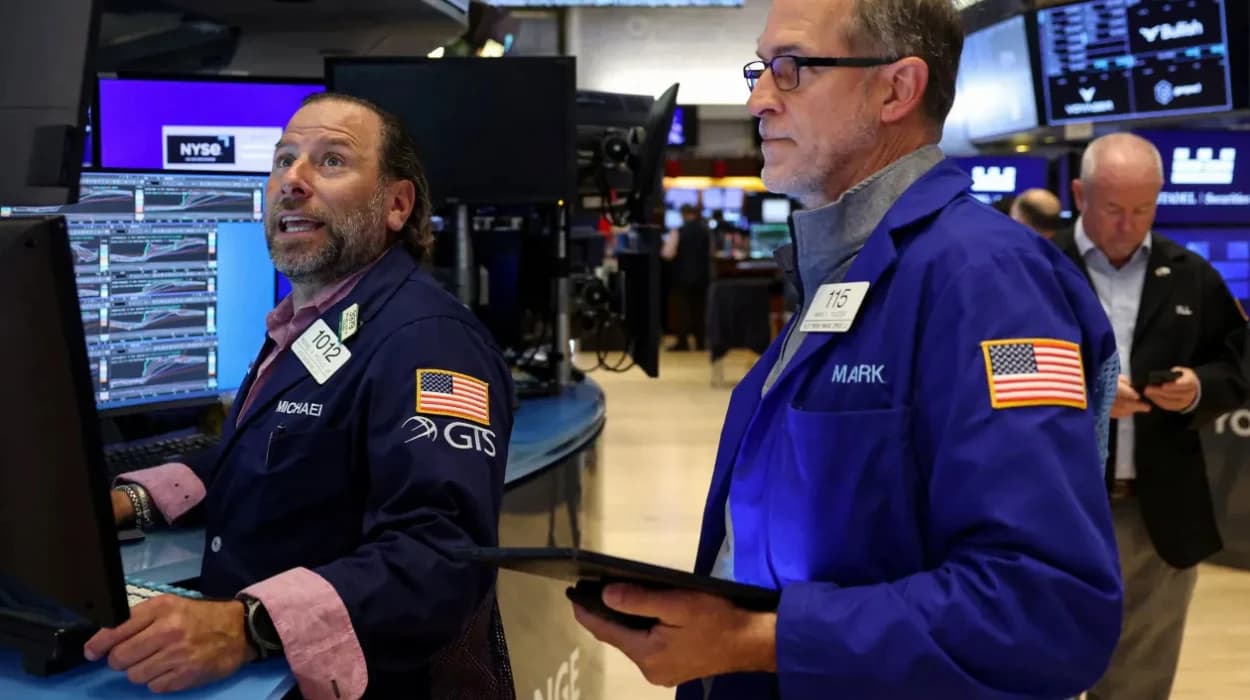U.S. stock markets reached record highs this week, a remarkable feat given growing concerns about the labor market and an ongoing government shutdown that has disrupted key economic data releases. Major indices like the Dow Jones Industrial Average, the S&P 500, and Nasdaq set new closing records over the past several days, underscoring robust investor confidence despite underlying economic uncertainties.
On October 2, 2025, the S&P 500 climbed approximately 0.3% to a record close, while the Nasdaq rose by 0.4%, and the Dow Jones added 43 points or 0.1%. These gains came amid optimism that a federal funding impasse would be brief and not severely impact the broader economy. Trading on Wall Street continued this trajectory into October 3, with futures rising amid hopes of an imminent Federal Reserve interest rate cut, a signal that investors expect continued support for economic growth and corporate earnings.
Government Shutdown Impact and Market Resilience
The U.S. government shutdown, entering its third day, has stalled critical government functions, particularly delaying the release of vital economic data such as the highly anticipated nonfarm payrolls report. The shutdown commenced after congressional leaders failed to reach an agreement by a funding deadline, with Democrats and Republicans exchanging blame for the stalemate.
Despite this, the market has largely shrugged off the shutdown’s negative implications. Financial strategist Saglimene from Ameriprise Financial noted,
"Strong macroeconomic conditions, bolstered by vigorous consumer activity, combined with the Fed's potential to lower rates, have fostered a market atmosphere where stock volatility has remained largely stable."
This stability is attributed to solid corporate earnings, especially in technology sectors, and investor confidence that legislative deadlock will be short-lived.
Notable deals have also bolstered investor sentiment. One example is Warren Buffett's Berkshire Hathaway's announcement to acquire Occidental Petroleum’s petrochemical division for $9 billion, signaling continued corporate confidence and investment activity despite wider political gridlock.
Labor Market Concerns and Alternative Data Indicators
A substantial source of concern is the labor market, which is showing signs of cooling off. The Labor Department announced a sharp slowdown in job growth, with August’s figures revealing only 22,000 new jobs added—a stark drop from expectations of 75,000. Additionally, data from payroll processing firm ADP reported a decline of 32,000 private sector jobs in September, the largest drop since March 2023.
The nonfarm payroll report, scheduled for early October, was postponed due to the government shutdown, causing analysts and investors to turn to alternative data sources to gauge the health of the labor market. The cooling job market, while raising caution, has simultaneously fueled speculation that the Federal Reserve could soon reduce interest rates to support economic activity.
Mulmat, CEO of North American parent company tastytrade, stated,
"It will require more than a single disappointing data report to shake this market at this stage."
This remark reflects a broader market view that current earnings strength and consumer spending can sustain stocks through short-term economic jitters.
Inflation Outlook Clouds Future Market Path
Looking ahead, investors are anxiously awaiting fresh inflation data, which has been delayed due to the shutdown. The personal consumption expenditures (PCE) price index—closely watched by the Fed—is expected to rise moderately in its next release, sustaining concerns about persistent inflationary pressures. Forecasts for the upcoming report predict a month-over-month PCE increase of 0.3% and a year-over-year rise of 2.7%, with the core index expected to follow similar trends.
Persistent inflation combined with a weakening labor market presents a delicate balancing act for Federal Reserve policymakers. They must weigh the benefits of potentially cutting interest rates to support growth against risks of inflation remaining above target levels. The next Fed meeting scheduled for late October is now clouded by uncertainty, as the lack of fresh government data complicates decision-making.
Tech Sector Leads Amid AI Optimism
Despite the broader macroeconomic concerns, technology stocks have shone brightly, driving much of the market’s record highs. The rise of artificial intelligence (AI) investments and innovations has injected strong momentum into the sector, with companies like Nvidia reaching historic market capitalizations—recently hitting $4.5 trillion, a first for any company.
Even as some tech stocks experienced minor pullbacks—for example, Nvidia closed slightly lower on October 2 after consecutive gains—the sector’s overall strength remains a critical underpinning of market optimism. Analyst commentary suggests that AI innovation continues to fuel investor enthusiasm and offset worries stemming from other economic challenges.
Market Outlook: Cautious Optimism Despite Risks
As Wall Street heads into the coming week and month, the dominant sentiment remains a mixture of cautious optimism and close monitoring. The current bull market rally shows signs of resilience, sustained by strong corporate earnings, significant technology sector advances, and anticipation of accommodative monetary policy. Nevertheless, the shadow of the government shutdown, labor market softness, and inflation uncertainties temper this confidence.
Investors are increasingly attentive to how the duration of the government shutdown will impact economic data flow and Federal Reserve decision-making. Market watchers emphasize that while stocks have historically weathered shutdowns without major disruption, the present environment is uniquely challenging due to several overlapping economic conditions.
As one strategist bluntly summarized,
"Stocks have typically glided by previous shutdowns — but this one could be riskier given the slew of economic conditions at play."
This statement underscores the need for vigilance as policymakers and market participants navigate the evolving economic landscape.
U.S. stocks have impressively closed at record highs despite the backdrop of job market worries and an ongoing government shutdown that has delayed crucial inflation data. Investors’ hopes are pinned on potential Federal Reserve interest rate cuts and the resilience of key economic sectors, especially technology. However, the challenges of a slowing labor market, inflation pressures, and political uncertainties remain significant headwinds. The coming weeks will test how far this optimism can sustain itself as economic data returns and policymakers confront complex decisions.

